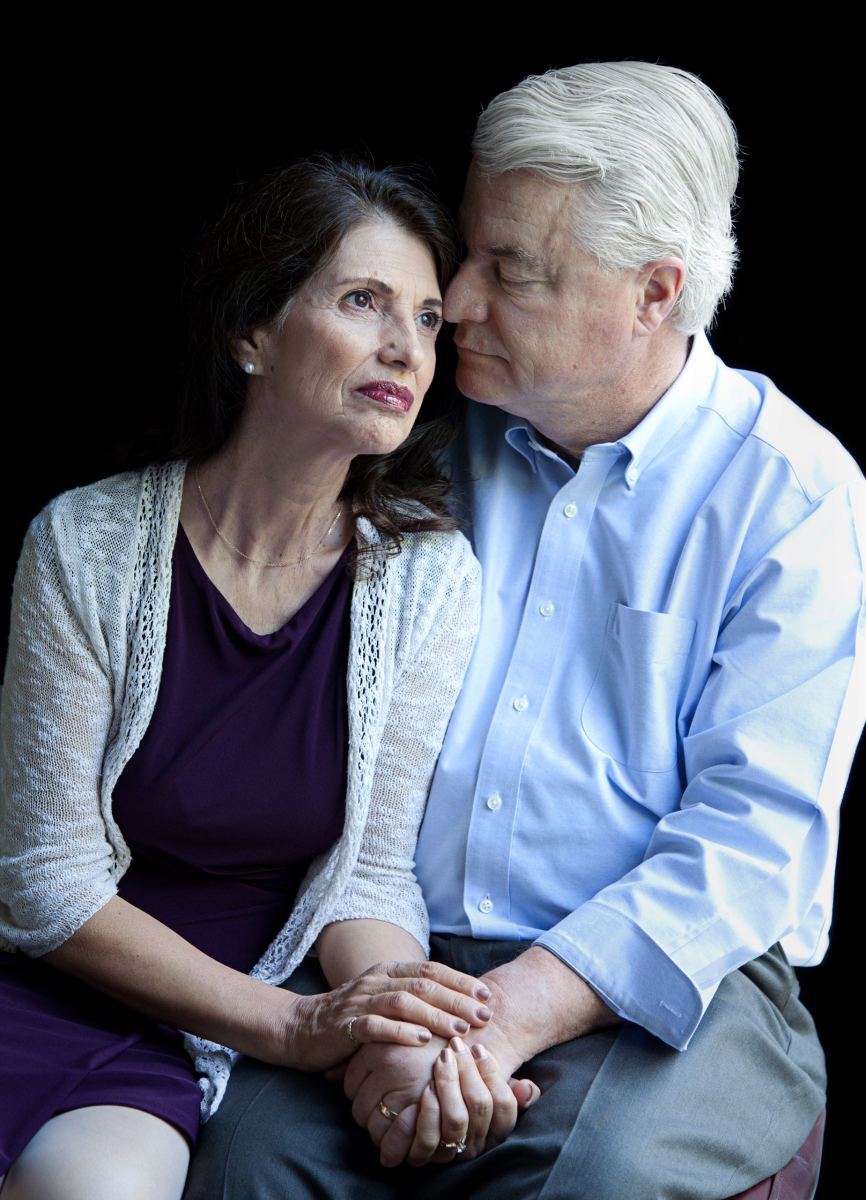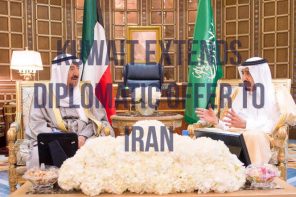Our number two piece comes from The New Yorker.
Until recently, they had not known of one another, or of the unexpected benefactor who had brought them together. They were the parents of five Americans who had been kidnapped in Syria. The Federal Bureau of Investigation had warned the families not to talk publicly about their missing children—and the captors had threatened to kill their hostages if word leaked out—so each family had been going to work and to church month after month and reassuring colleagues and neighbors and relatives that nothing was wrong, only to come home and face new threats and ransom demands. After hiding the truth for so long, the families were heartened to learn that others were going through the same ordeal, and they hoped that by working together they might bring their children home.
His [David Bradley’s] publishing company, Atlantic Media, has amassed half a dozen titles, from National Journal to Quartz. He was drawn into the families’ tragedy because he had helped to free hostages once before. In 2011, Clare Gillis, a freelancer who had contributed a few stories to The Atlantic’s Web site, was captured in Libya, along with two other reporters, by soldiers loyal to the government of Colonel Muammar Qaddafi. (A fourth reporter was killed.) Bradley was surprised to learn that the U.S. government was not involved in negotiating the return of the hostages.
On a whiteboard, Bradley drew several concentric circles. The smallest represented people in charge of the hostages, such as guards and wardens; a wider circle included military officers and junior members of the Qaddafi administration; wider still was the circle of senior Libyan officials, including Qaddafi and his family. The largest circle contained any people Bradley or his staffers could think of who might have a connection to those in the smaller rings. Bradley called this a network-analysis chart. The idea was that someone would know someone who knew someone who could locate Gillis. The team pinpointed about a hundred people to approach. One led to an American woman, Jacqueline Frazier, who had once lived in Tripoli, serving as the personal assistant to one of Qaddafi’s sons. Frazier volunteered to return to Libya, and she persuaded her contacts in the government to release the reporters, after forty-four days of captivity. It hadn’t been that hard to gain Gillis her freedom. But where would she be had no one tried?
Bradley’s team sought out diplomats and journalists who had fixers in the region. They were looking for members of Assad’s inner circle. Some Syrians living in exile had maintained ties to influential figures, and these élites would have been educated in American schools. Bradley’s team also approached Russian supporters of Assad. But the sources consistently reported that the regime did not have Foley. Bradley recalled, “By summertime, I was of the view that, if this was my child, I’d be looking in the north.” That was ISIS territory now—a long way from Norman Rockwell country.
Upon learning that her son, Peter Theophilus Padnos, was missing in Syria, Nancy Curtis did an almost identical thing, she rounded up her resourceful friends and started working to get her son back.
Curtis called her cousin Viva Hardigg. “Something calamitous has happened,” Curtis said. Hardigg enlisted two other cousins: Amy Rosen, who was the chairman of the board of the KIPP charter schools in Newark; and Betsy Sullivan, an editor at the Cleveland Plain Dealer. Rosen had served on Amtrak’s board of directors and knew her way around Washington; Sullivan brought the experience of having been detained by the Bosnian Serb Army while reporting on that conflict. Curtis, Hardigg, Sullivan, and Rosen became known as the All-Girl Team.
Curtis contacted the International Committee of the Red Cross, which often visited prisons. She was hopeful that her son was being held by the Syrian government. The woman she talked to had no information about that, but shared some news. “I shouldn’t be telling you this,” she said. “But there’s another family in New England you ought to call.” She gave her Diane Foley’s number.
Here at home it’s hard to imagine how someone could volunteer to go to a war torn, dangerous place like these brave journalists did. James Foley was kidnapped, rescued and still returned. That’s not bravery that’s a calling. That’s having a sense of purpose that you can’t deny yourself. We should all be so grateful to members of the media who put their lives on the line to tell a story that no one would ever know otherwise. People in the US are all too quick to bash the media. I hope stories like this New Yorker piece remind everyone of how important the media is and how much is sacrificed to bring the story home to you.
Some members of the site began speculating that spotters on the border were selling information about reporters to Islamists. In December, 2012, criminals associated with the Free Syrian Army abducted Richard Engel, an NBC correspondent, and five members of his crew. Two aid workers, an Italian and a British man, were taken in March, 2013; a Danish photographer in May; four French journalists and a German tourist in June. About seventy Syrian reporters had been killed in 2012 and 2013. Because the media observed a blackout on abductions, more reporters kept arriving, not fully aware of the dangers they faced.
The parents banned together, through power struggles and different opinions on the right course of action could not be avoided.
The next afternoon, the families met in the West Wing with Lisa Monaco, the homeland-security adviser to President Barack Obama, and members of the National Security Council. The families had written a letter to Obama. Calling themselves Parents of American Hostages in Syria, they asked Obama to give them a clear idea of what could be done. ISIS seemed to be proceeding in an orderly manner in releasing European hostages, first the Spanish and then the French; an Italian journalist was freed several days after the White House meeting. The released Europeans spoke of enduring torture and starvation. They heard frequent gunfire—presumably, the sound of Syrian and Iraqi prisoners being executed. Some of the Westerners were more abused than others, but the treatment was always capricious and sadistic. These accounts dismayed the families, yet they also were fortified by the knowledge they had gained from the Europeans, many of whom had spoken to Barfi or to family members.
This is a moment of opportunity,” the group letter said. “We have knowledge of the groups that are holding our children; we have knowledge of their location and the motives of their captors; we have examples of successful releases facilitated by foreign governments.” At the meeting, the families asked that Obama appoint someone to coördinate among the White House, the F.B.I., and the State Department, providing the timely information they needed to make life-and-death decisions.
Officials at the White House meeting expressed sympathy and concern, but were vague about what the government might do to help. And on the subject of ransoms the officials were blunt. On this and two other occasions, Colonel Mark Mitchell, the director of counterterrorism at the National Security Council, warned the families that they risked prosecution if they paid terrorists or tried to persuade an allied power to do so. “I’d rather be in prison myself and have Jimmy home,” John Foley said afterward. Nancy Curtis shrugged it off: “I’m seventy-six years old. Let them put me in jail.”
The fact that the European hostages were safely home underscored the ineffectiveness of American policy. Didier François, a released hostage, told me that, although French officials publicly deny paying ransoms, “they do negotiate, because every French citizen taken is an attack on French
French sovereignty.” François added, “It doesn’t mean we surrender to all the demands of the captors. It doesn’t mean we change our foreign policy.” Last year, the German magazine Focus reported that the French government paid ransoms totalling eighteen million euros for the four journalists. François called this “ridiculous.” He explained that captors always start high, but skillful diplomacy can moderate their demands. He added, “As long as it doesn’t change the situation on the ground, why should we not get our people out?”
The U.S. government’s position is that the Europeans imperil everybody by paying off terrorists. In a 2012 speech, David Cohen, then the under-secretary for terrorism and financial intelligence at the Treasury Department, said, “Ransom payments lead to future kidnappings, and future kidnappings lead to additional ransom payments. It all builds the capacity of terrorist organizations to conduct attacks.” The U.S. government estimates that, between 2008 and 2014, radical Islamist groups collected more that two hundred million dollars in ransom payments, which allowed those groups to spread. ISIS might not exist in its present rampant form without the funds that kidnapping provided.
The families had mixed feelings about ransoms.
The journalists on the ground believe that the bureau never interviewed any of the fixers who had been captured with the hostages and then released. (The journalists knew these fixers well.) In any case, that was the last that the journalists saw of the F.B.I. The Bradley team eventually contacted more than a hundred and fifty people. Only a few of them said that they had spoken to the U.S. government.
When Peter Kassig was kidnapped, his parents got a call from a State Department official. Paula recalls, “She basically said, ‘We know your son has been taken in Syria. We don’t have an embassy in Syria. We don’t have people on the ground in Syria. We don’t have a diplomatic relationship with them, so we can’t do anything to help you.’ ” In May, 2014, the families had a joint meeting with Daniel Rubinstein, a special envoy appointed to handle affairs in Syria. “He was nice, but when we asked how to contact him we were told not to e-mail or phone him,” Diane Foley says. In order to talk with him on the phone, the families had to travel to a local F.B.I. office, so an agent could dial Rubinstein’s number for them. When the Foleys drove to the Boston office for this purpose, they learned that the phone line they were using wasn’t even secure. They concluded that the only reason for the protocol was to allow local agents to monitor them.
“Why are you doing this?” Goldberg asked Bradley when he heard about the team that had been assembled. After all, Bradley was not the attorney general or the Secretary of Defense. Bradley responded, “When I wake in the morning, I could study online advertising patterns—or I could try in some way to save the lives of Americans who are held by fanatics. When I looked at the options in front of me, it was obvious what was the best use of my time.”
Bradley lacked the government’s resources, but he had connections, and he didn’t feel constrained by protocol. Several of the families worried that information on the hostages’ social media could be used against them—Sotloff’s Israeli citizenship, Padnos’s book on Islam, Kassig’s experience in Iraq—but the F.B.I. said that it could not gain access to the hostages’ accounts, because of privacy concerns. Bradley called Sheryl Sandberg, the chief operating officer of Facebook; Dick Costolo, then the C.E.O. of Twitter; and Brad Smith, the general counsel of Microsoft, and they were willing to work with the families to help. Facebook, for example, made Padnos’s account invisible to the public
In the final months of captivity, Foley and Ottosen had been chained together, and Ottosen secretly memorized a note from Foley to his family. One of his first calls after being freed was to recite the letter to Diane Foley. “I remember going to the mall with Dad, a very long bike ride with Mom,” the letter begins. “Dreams of family and friends take me away and happiness fills my heart.” Foley downplays the abuse, saying that he has “weak and strong days.” He adds, “We are so grateful when anyone is freed, but of course yearn for our own freedom.” He mentions each of his three brothers and his sister, Katie, expressing hope that he will attend her wedding one day. “Grammy, please take your medicine,” he writes. “Stay strong, because I am going to need your help to reclaim my life.”
Diane and a few of the other parents talked to some of the freed European hostages. The Europeans were guarded in those conversations, but they spoke frankly to Barfi and Bradley, and in interviews that they later gave to the press. They said that among their guards was a group of British Muslims, whom the captives called the Beatles. The ones they called George and John were especially sadistic. The Beatles paid particular attention to Foley, because he and John Cantlie had tried to escape. Foley had made it out of his cell, but when Cantlie couldn’t break free of his chains Foley surrendered. “I couldn’t leave John on his own,” he told the others. They were beaten savagely, and waterboarded on one occasion. Later, Foley incurred the guards’ anger because he requested extra rations and more frequent trips to the toilets for the weakest captives. He gave his mattress to another prisoner and slept on the stone floor. He never complained about abuse. “They didn’t like the fact he would not submit,” Didier François, the French hostage, told me. Foley was a pillar of the group, François said. “He tried to establish some balance of forces with the guards—some breathing space.”
Foley organized informal lectures. Kassig told stories about hunting and fishing with his father. François described covering the war in Chechnya. Cantlie explained how to pilot a plane. Foley lectured on American literature and his captivity in Libya. The others depended on Foley to keep their spirits buoyed. “This guy, he was a man,” Nicolas Hénin, another French hostage, later told L’Express. “He remained upright, dignified.” He added, “When I see his mother’s reaction, I recognize her son. They are made of the same metal.”
We hope you will read the whole story. It is extraordinary.





